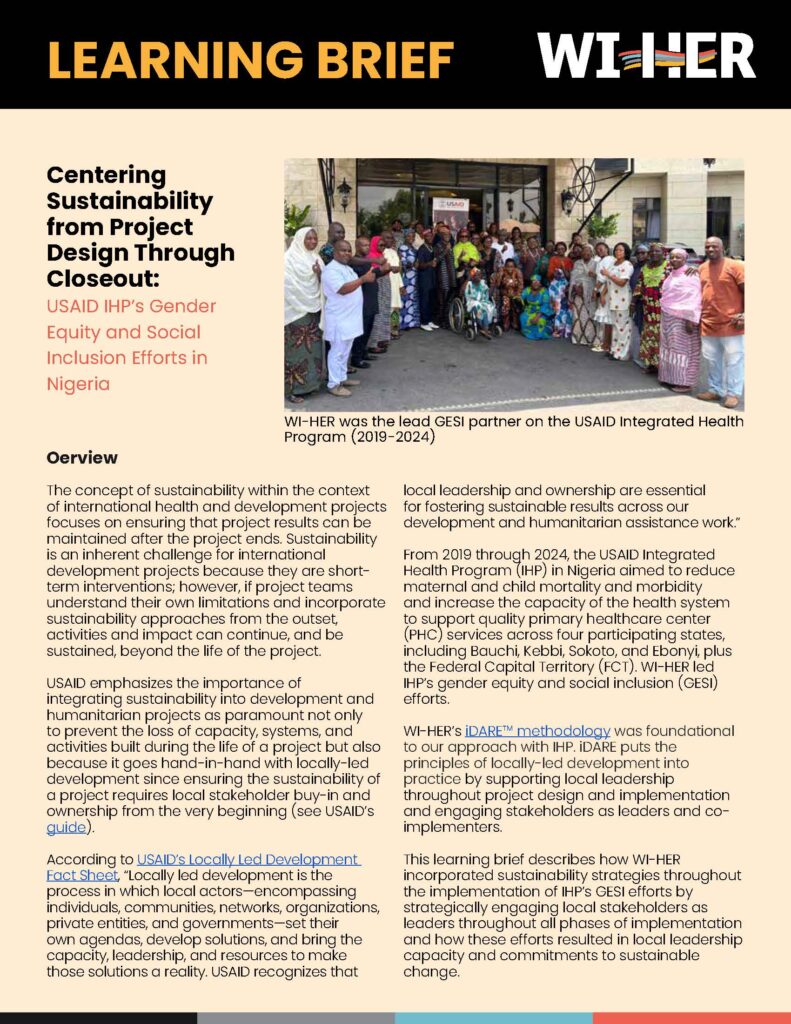Centering Sustainability from Project Design Through Closeout: Learning Brief
By Lisa Bowen, WI-HER Program Manager, SJ Renfroe, WI-HER Senior Associate
The concept of sustainability within the context of international health and development projects focuses on ensuring that project results can be maintained after the project ends. Sustainability is an inherent challenge for international development projects because they are short-term interventions; however, if project teams understand their own limitations and incorporate sustainability approaches from the outset, specifically through fostering local ownership and buy-in, activities and impact can continue, and be sustained, beyond the life of the project.
From 2019 through 2024, the USAID Integrated Health Program (IHP) in Nigeria aimed to reduce maternal and child mortality and morbidity and increase the capacity of the health system to support quality primary healthcare center (PHC) services across four participating states, including Bauchi, Kebbi, Sokoto, and Ebonyi, plus the Federal Capital Territory (FCT). WI-HER led IHP’s gender equity and social inclusion (GESI) efforts.
This learning brief describes how WI-HER incorporated sustainability strategies throughout the implementation of IHP’s GESI efforts by strategically engaging local stakeholders as leaders throughout all phases of implementation and how these efforts resulted in local leadership capacity and commitments to sustainable change.
This learning brief covers:
- How to apply sustainability and locally-led development approaches to GESI interventions;
- Why sustainability strategies should center around strengthening local leadership, local systems, and local capacity; and,
- Lessons learned about sustainability and how sustainable, locally-led interventions catalyze lasting impact and more sustainable results.
